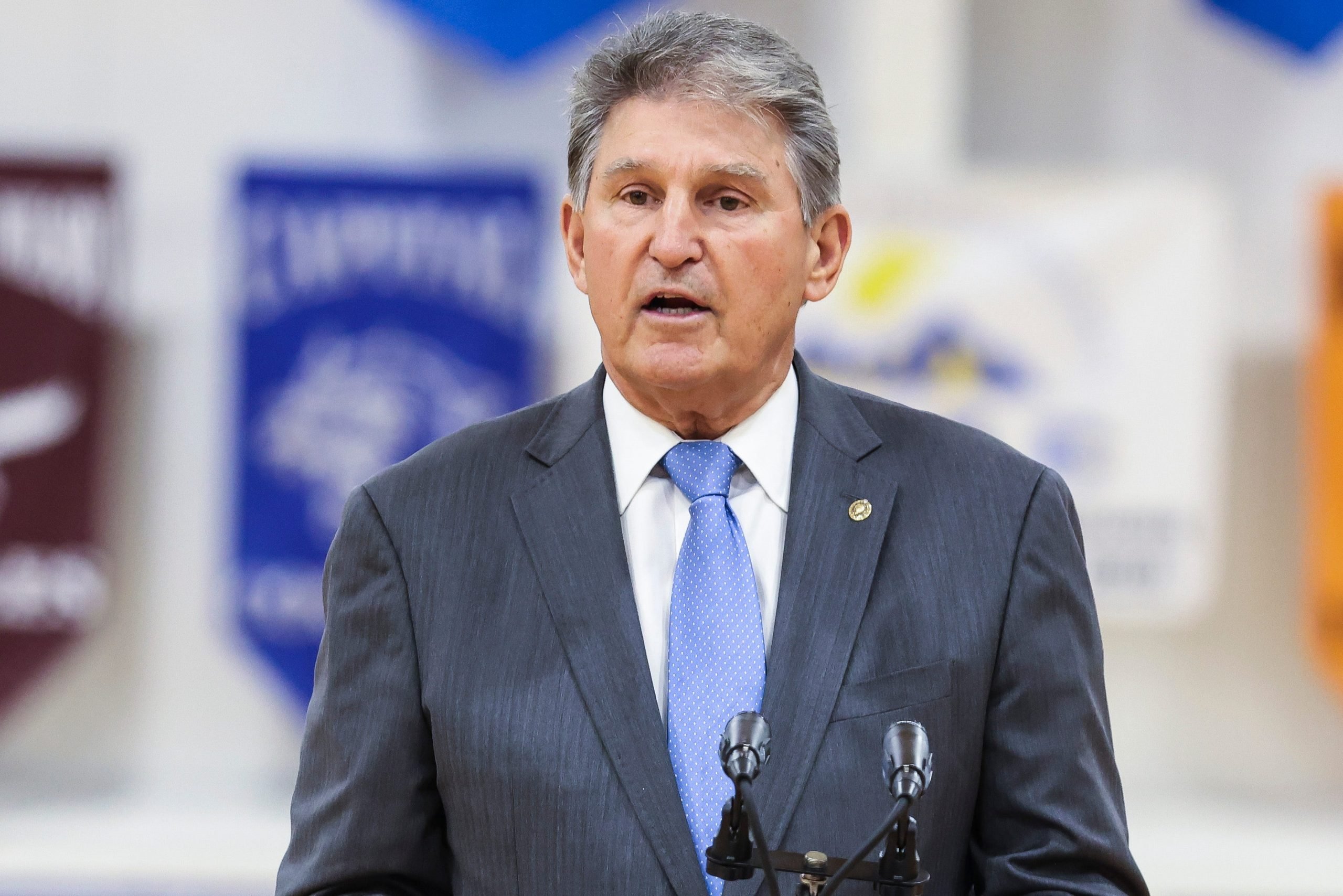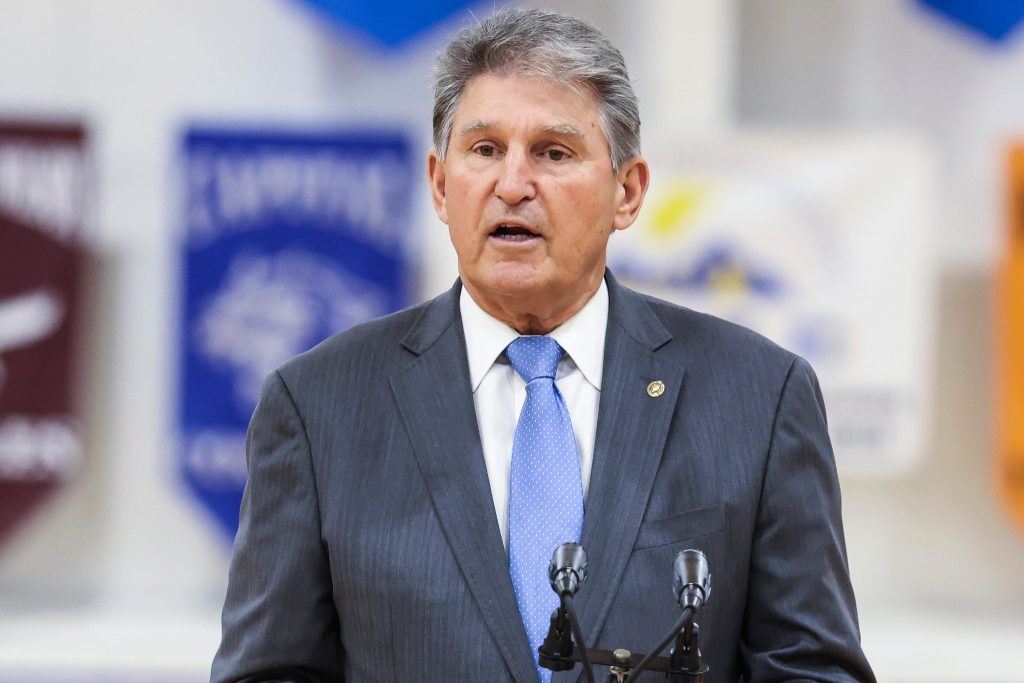
Oliver Contreras/The New York Times via AP, Pool
- Sen. Joe Manchin announced that he would vote against the For the People Act.
- The voting rights legislation would nullify many GOP-led voting restrictions passed in the states.
- President Joe Biden has called for passage of the voting rights bill.
- Sign up for our daily newsletter 10 Things in Politics You Need to Know Today.
Democratic Senator Joe Manchin of West Virginia on Sunday said that he would vote against the sweeping voting rights legislation known as the For the People Act, imperiling one of his party's most important legislative priorities.
In declaring his opposition, Manchin is defying Democratic pleas for federal action on securing voting rights, which the party says is necessary to counter the raft of restrictive voting laws championed by the GOP at the state level.
However, in an opinion piece in the Charleston Gazette-Mail, the moderate senator deemed the bill (S.1) as overly partisan, while also reaffirming his support for the filibuster, positions that have become anathema to many Democrats after years of legislative gridlock in Congress.
"The right to vote is fundamental to our American democracy and protecting that right should not be about party or politics," he wrote. "Least of all, protecting this right, which is a value I share, should never be done in a partisan manner."
He emphasized: "I believe that partisan voting legislation will destroy the already weakening binds of our democracy, and for that reason, I will vote against the For the People Act. Furthermore, I will not vote to weaken or eliminate the filibuster.
Manchin wrote that voting reform that couldn't garner bipartisan support "will all but ensure partisan divisions continue to deepen."
In March, the House passed the For the People Act in a near-party line 220-210 vote. Rep. Bennie Thompson of Mississippi was the sole Democrat to vote against the bill.
The legislation would end partisan gerrymandering, expand early and absentee voting, establish national standards for voter registration, and blunt voter purges, among other reforms.
The bill would also mandate that states offer mail-in ballots and same-day voter registration, which Republicans have long resisted in many states.
Former President Donald Trump's debunked voting claims have only deepened the partisan divide on voting rights, and GOP congressional leaders have vehemently come out against the For the People Act.
However, Manchin sees potential in the John Lewis Voting Rights Advancement Act, a bipartisan election reform bill, which he supports and hopes to see signed into law.
"My Republican colleague, Sen. Lisa Murkowski [of Alaska], has joined me in urging Senate leadership to update and pass this bill through regular order," he wrote. "I continue to engage with my Republican and Democratic colleagues about the value of the John Lewis Voting Rights Advancement Act and I am encouraged by the desire from both sides to transcend partisan politics and strengthen our democracy by protecting voting rights."
President Joe Biden has called for the passage of both pieces of legislation, but without Manchin's support of S.1. and the prospect of the filibuster still being in place, the chances of the bill reaching his desk have narrowed.
Democrats and Republicans each have 50 seats in the Senate, with the former party controlling the chamber due to Vice President Kamala Harris's tiebreaking vote.
However, the voting rights bill would have to clear the 60-vote threshold to withstand a legislative filibuster and proceed to a vote where it could pass with a simple majority.
